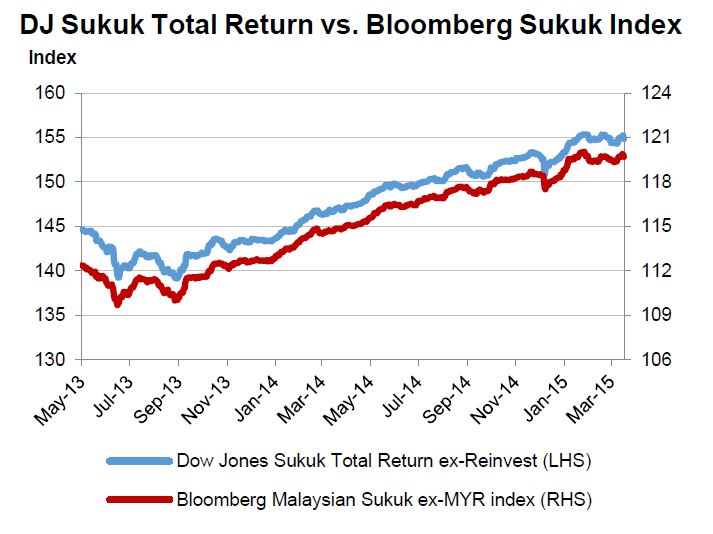In a research note, RAM Rating stated new global sukuk issuance to remain fairly resilient in 2015, at around USD100 billion to USD120 billion (2014: USD116.23 billion), despite the challenging environment for Malaysia and the GCC amid the steep fall in global oil prices since last year.
GCC Issuers May Delay Till H2 2015
GCC sukuk issuers that typically tap the international markets could well delay their plans to the second half of 2015, until the full impact of soft oil prices and the possible effects on their credit standing can be digested by potential investors. Geopolitical risks in the GCC, Europe’s quantitative-easing programme and the much-touted rate increase by the US Federal Reserve this year have compounded the uncertainties for GCC sukuk issuers and their potential investors.
Ringgit Sukuk
Although ringgit-denominated sukuk issuance was rather slow off the block this year, issues from the infrastructure sector and financial institutions as well as some supply of Islamic securities from Bank Negara Malaysia are expected to keep Malaysia in the lead, with about 60-70% of the global sukuk market’s issuances. The stability of the sukuk market is also underpinned by sturdy demand from Islamic and conventional ringgit-mandated domestic institutional funds as well as Malaysian-domiciled Islamic banks that are less likely to be perturbed by external shocks.
”Beyond leading the global sukuk market, innovation is also Malaysia’s forte,” highlights Promod Dass, Deputy CEO of RAM Ratings. The Securities Commission Malaysia’s Sustainable and Responsible Investment (SRI) sukuk framework – launched in August 2014 – has allowed Malaysia to keep exploring new frontiers. ”Khazanah Nasional Berhad’s plans for an upcoming SRI sukuk will be another milestone for Malaysia in this arena,” adds Promod.
Sharia Standards
Meanwhile, issues involving Sharia interpretation, the standardisation of documentation, tax treatment and the still-developing legal and regulatory frameworks to support sukuk in different jurisdictions form part of the slew of hurdles that global issuers and investors alike have to contend with, when deciding between sukuk and conventional bonds. These factors tend to segmentalise the global sukuk market and limit the pace of cross-border issuance. As such, accelerating and orchestrating the global sukuk market’s growth would be a complex task, although some parts of the formula for success are already evident in the Malaysian sukuk and bond market.
Notably, the Malaysian sukuk market has played host to many well-known GCC-based issuers, which have been raising ringgit-denominated sukuk since 2008. This highlights how regulatory drive as well as a supportive legal and tax environment in a particular market can foster cross-border sukuk growth. ”Perhaps the next leap for global sukuk will materialise when GCC sovereign wealth funds, which are among the world’s largest, reallocate more of their portfolios to invest in sukuk from Asia, Europe, the US and other non-OIC nations. Issuers from non-OIC nations that typically do not opt for sukuk could then be more convinced to explore this route for funding diversity, once they see this seismic shift.” observes Promod.

 [/caption]
[/caption]

